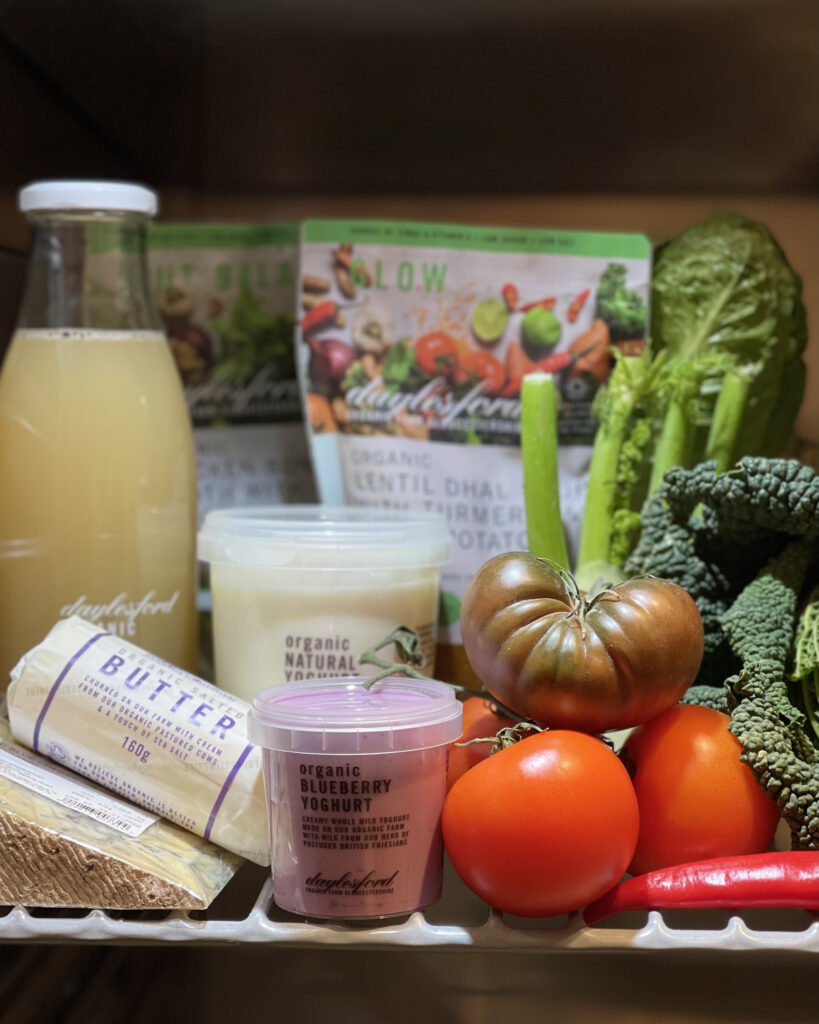
STORIES · 18.01.22
Food | Mindful Living | Sustainability
Many of us begin the new year with good intentions – whether it be to start a new hobby, eat a little healthier, move more or use our devices less. Whatever yours may be, I believe the most successful resolutions are those that can be broken down into small, repeatable behaviours that are easily built into your routine – and are therefore more likely to be kept.
Adjusting our lifestyles to ensure we are looking after the planet works in much the same way, so I thought I would share some of the small changes we can all make to reduce food waste in our homes. I was shocked to learn that British households produce 6.6 million tonnes of food waste each year – this means that we use an area the size of China to produce food that goes straight into the bin. When you consider the energy, water and land resources used and then squandered to produce this food, the impact is just as environmentally damaging as packaging waste. The vast majority of this comes from our homes rather than restaurants, so here are some helpful tips I hope inspire you to make the most of nature’s produce.
british households produce 6.6 million tonnes of food waste each year – meaning that we use an area the size of China to produce food which goes straight into the bin
Audit your kitchen
Spoiled food accounts for almost half of all that is wasted, usually because we lose track of what is hiding in our cupboards or at the back of the fridge. Organising your kitchen weekly helps to avoid this – ensuring storage areas are not overstuffed, and rotating your goods when new items come in. Much like in our farmshops, food approaching its use by date goes at the front of my shelves, and newer items at the back.
Calculate portion sizes
When cooking for one or two people, it is easy to overestimate how much to make. According to the Waste and Resources Action Programme, a quarter of food waste can be attributed to cooking and serving too much, so finding easy ways to measure ingredients can help to reduce this. Shopping from zero-waste filling stations and buying loose fresh produce also ensures you only buy as much as you need, so you are less likely to over-cater.
Love your leftovers
I often think dishes created with leftovers are the most delicious, however it is estimated that 4.5 million tonnes of Britain’s annual food waste is still edible. I listened to a talk with Michael Pollan who spoke about each meal ‘rolling into the next’ and I love this idea where, for example, last night’s Bolognese becomes the next day’s lasagne, or Sunday’s roast chicken becomes Monday’s pie, soup, or Caesar salad.
Make friends with your freezer
As well as meat and fish, there are so many other foods you may have thought about throwing away that can be frozen safely and used in the future. Peeled brown bananas are great to keep for using in smoothies or baking and stale bread can be sliced and defrosted straight in the toaster – or whizzed into breadcrumbs and frozen in a little bag. Most years I grow many more herbs in my garden than I can use, so they get chopped and frozen, ready to be added to recipes throughout the year. Similarly, leftover stocks, sauces and pestos can be frozen in ice cube trays, and popped into new dishes as you need.
Composting
If you have a little outdoor space, composting green waste and coffee grounds is a wonderful natural way to nourish your garden – improving the structure and health of your soil and the vitality of the plants you subsequently grow. Getting started requires a little thought and planning, so you can click here to watch a helpful guide on how to begin composting at home with Jez, Daylesford’s Head Gardener.
